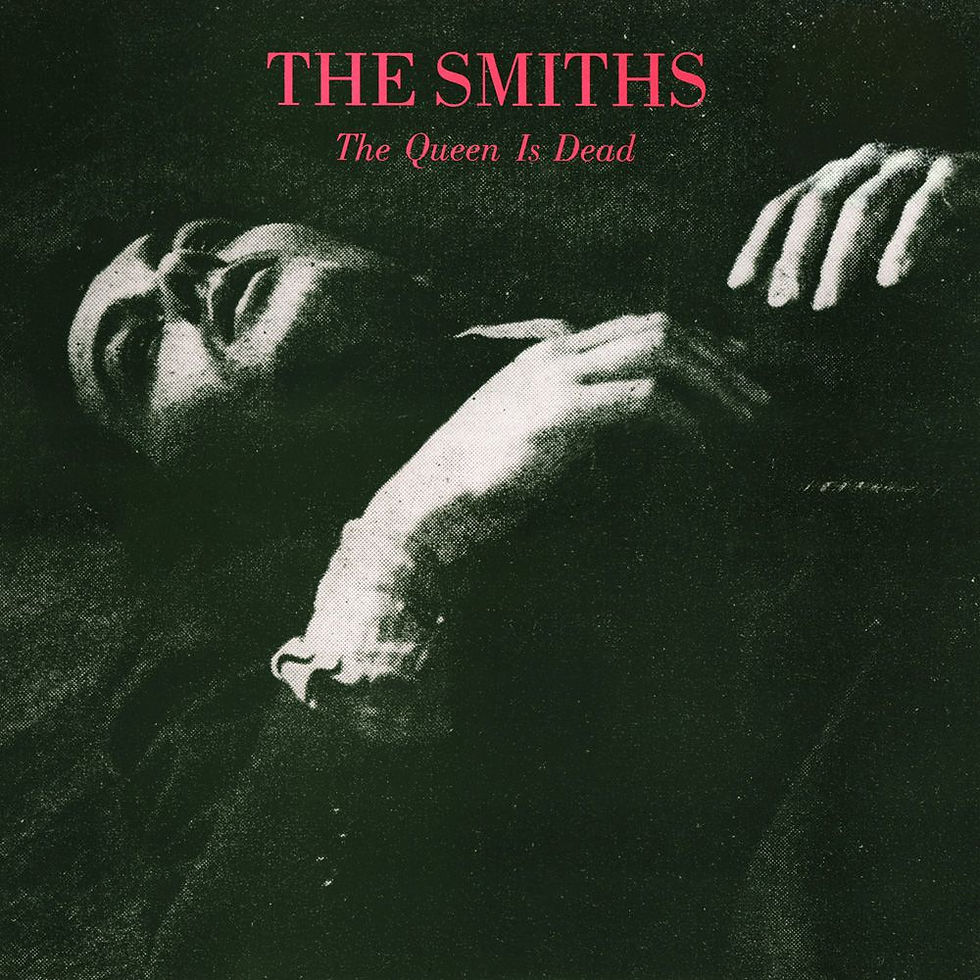So, Farewell, then, Mrs Thatcher (6 April 2013)
- floyd132
- Sep 7, 2022
- 5 min read

Where do you start with a leviathan like Thatcher? It is a truism that they don’t make them like they used to, that policemen are getting younger and wagon wheels smaller but where is the politician today that might dare assume her mantel, never mind her policies? Politicians of today just don’t seem as big, somehow. I am reminded of the Spitting Image sketch with her entering the gents – it just doesn’t seem appropriate with the class of 2013. Or the gag about the vegetables, or the many others that she inspired. No one else seemed big enough.
Things went wrong and mistakes were made, of that there can be no doubt, but as the inevitable hordes line up to traduce Thatcherism (and hopefully less the person) it is worth wondering whether the damage done by the Thatcher years was greater or less than that imposed by her spiritual successor, Blair. To be sure, without Thatcher there could have been no Blair but those Labour supporters so keen to celebrate Thatcher’s death (a pretty bleak notion at the best of times) may choose to reflect that after 13 years of Labour Britain was riven by greater inequalities of wealth, in a profoundly worse economic position and had been manipulated into two wars of at best questionable legality.
Of course, if you maintain that Blair was not socialist and therefore not your fault then at least you cannot be accused of inconsistency. But how was it he was re-elected twice? Someone must have been voting for him.
Below is an article I prepared mid 2004 for some reason, and it just about merits dusting off now.
The Sixties, we are reminded on a regular basis, were responsible for a great many things, from Jimi Hendrix to legalised abortion to the break up of the New Deal Coalition. Now we are told by our PM no less, that they are also responsible for mobile phone theft, binge drinking, teenage pregnancy and all other manner of social evils. Apparently, it has something to do with ‘freedom without responsibility’, of which more later.
Anyway, I consider myself a by-product of the sixties, brought forth as I was on a cold and miserable day in March, 1970 and if we discount the freakish 1976, I would argue that my formative years can be summarised as ‘cold and miserable’, coloured as they were by apparently endless strikes, power failures, excruciatingly bad fashion, prog rock and the horrific embarrassment of the Queen’s jubilee (all those street parties with neighbours you loathed, pearly kings and queens and relentless Gawdbless‘er’ism. Ack.) The seventies were not fun, they were not hip, they were not cool and in retrospect they just look even worse. Space hoppers were not funny then and they are not funny now, just as a bad haircut is a bad haircut. For these reasons and many more (most of which probably had to do with my dad) I found myself strangely receptive to the Thatcherite revolution. It seemed clear even to a teenager that Britain was in a bit of a mess and that some pretty drastic measures were needed to sort it out. This would not please everyone, of course, and mistakes would be made in the process but what was manifestly needed was a man with a plan and some idea of how to implement it. Whatever her faults, Mrs Thatcher was that man and for a while it was at least reassuring to be led by someone with integrity and a clear sense of direction if not destination.
All of which meant that while I could laugh along with the Young Ones, I could not really join in, much less understand, the vitriolic ritual of Thatcher abuse. And to a certain extent, I still can’t. As time wore on, of course, it became impossible to ignore that Mrs Thatcher had lost the plot and that she needed to be put out to grass somewhere quiet and away from other people but rather than taking delight in her looming and inevitable demise, I felt sorry for her. It was the same sort of pity reserved for someone getting too drunk at a wedding (er …) or making an arse of themselves on some TV programme, the type that makes you wonder why these people don’t have friends who might suggest that doing such a thing or wearing such an item might not, in fact, be a great idea. But then that’s probably why they’re on TV. Mrs Thatcher lacked such a person, or more likely simply drove away anyone likely to challenge her, and in the end it was left to Howe to raise the closed bolt gun (now who would have predicted that?) and put her out of our misery.
Having lost the Left’s Aunt Sally, we got John Major, the Worzel Gummidge of the Right, and a man who prompts recall of Billy Connelly’s observation that some people are more deserving of pity than scorn. It was impossible to hate Mr Major, at least not with the same visceral loathing as Mrs Thatcher seemed to inspire and I seemed doomed to go through life without hating a politician. It seems a little unfair, after all, to hate someone in opposition: they have problems enough to be getting on with and although IDS (and later Michael Howard - Ed) did push the rule to the limits, I couldn't raise the odium to fire my spleen.
Until now, that is. I watched with a sense of unease Blair’s triumphal entrance to Downing Street, trying to measure the bold promises of constitutional liberalism and courageous, invigorated government with the reptilian, oleaginous smarm seeping from that profoundly unnerving grotesque. Then I tried to understand how the elegant logic of granting independence to the Bank of England could sit next to the obtuse perseverance with the Millennium Dome. Since then, we have had, off the top of my head and in no particular order, Hinduja, Ecclestone, Mandleson, Mittal, cooking the devolved electoral books in Wales and London, flats in Bristol and assorted Caplin fiascos, introducing only to play fast and loose with the Human Rights, the shameful treatment of Donald Dewar, Mandleson again and, of course, Those Bloody Wars and all the smoke and mirrors associated therewith. Over this period, what was unease has metastasised and become something else, something quite scary and something that those pioneers of the alternative comedy scene would probably recognise. I am forced to wonder how someone who seemed set to breathe life into British politics could instead trample all over it and in so doing curbing basic freedoms, fiddling elections, abusing the constitution and misrepresenting and dissembling left right and centre. And I wonder why the rest of the country seems happy to let him get on with it and I wonder why the Conservative Party is not beating him to a bloody pulp at least once a week.
We are all guilty of negligence. The price of freedom is eternal vigilance and we have not been sufficiently vigilant of this smiling assassin. Subsequently, we have been led into a war of dubious legality that has unquestionably made the world a more dangerous place and the freedoms and privileges fought for face a greater threat from this government than Saddam Hussein ever posed. If Mr Blair wants to talk about responsibility then the first place he should start is by holding himself accountable for the errors his Government has made. He has shown scant respect for the Constitution by circumventing cabinet government, making a joke of collective responsibility, but that leaves individual responsibility. If he has any integrity left, he should take that observe that constitutional convention and put himself before his masters, the people. Mr Blair seems to have forgotten that politicians are merely legal sovereigns, holding sovereignty in trust on behalf of the political sovereigns. Now it is time for the political sovereigns to hold Mr Blair to account.

.png)



Comments